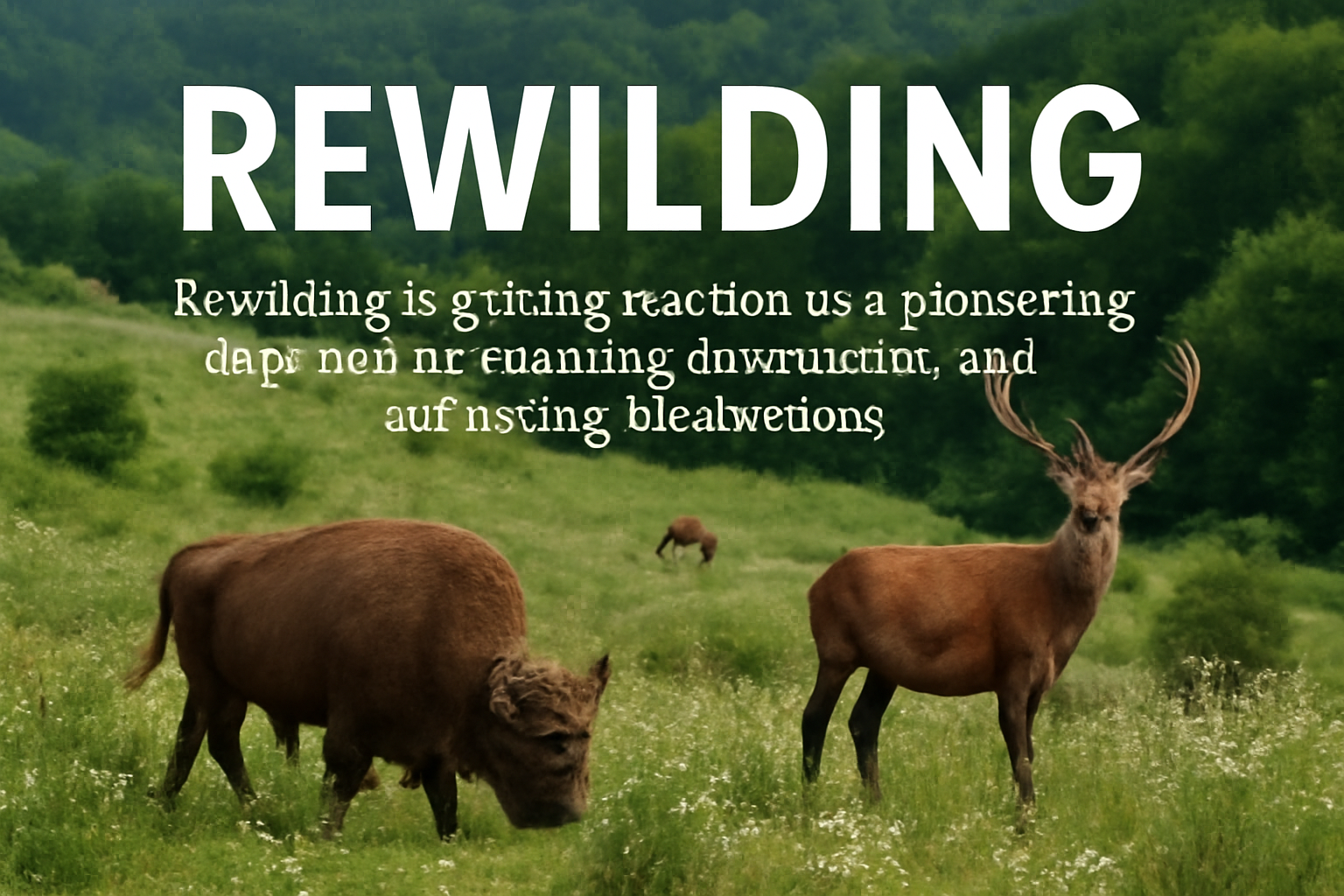Location
Mount Vernon, WA 98274
Location
Mount Vernon, WA 98274

Rewilding is gaining traction as a pioneering approach to restoring ecosystems and enhancing biodiversity. By reintroducing native species and allowing nature to take its course, these initiatives offer a hopeful solution to environmental degradation.
In recent years, the concept of rewilding has emerged as a transformative strategy for ecological restoration. This innovative approach advocates for the reintroduction of native species and the rehabilitation of natural processes, allowing ecosystems to recover and thrive on their own. With alarming rates of biodiversity loss, rewilding presents a promising avenue for addressing environmental challenges.
For instance, the Rewilding Europe initiative has made significant strides in restoring natural habitats across the continent. By focusing on areas such as the Southern Carpathians and the Danube Delta, this program aims to foster biodiversity and promote sustainable land use practices. The reintroduction of key species, like the European bison, not only helps restore ecological balance but also supports local economies through eco-tourism.
Recent studies indicate that rewilding can lead to increased carbon sequestration, a crucial factor in combating climate change. A report from the Nature Conservancy highlights how restored ecosystems can store significantly more carbon than degraded landscapes. This dual benefit of enhancing biodiversity while mitigating climate change is a compelling reason for the global community to invest in rewilding projects.
Moreover, rewilding initiatives cultivate a deeper connection between communities and their natural surroundings. As people engage with restored landscapes, they gain a greater appreciation for biodiversity and the importance of conservation. Programs that involve local populations in conservation efforts foster stewardship and empower individuals to take action towards preserving their environment.
Despite the promising aspects of rewilding, challenges remain. Conflicts with agricultural interests, land use regulations, and public perception can impede progress. Successful rewilding efforts require collaboration among stakeholders, including government agencies, conservation organizations, and local communities, to navigate these complexities.
As we face unprecedented environmental challenges, rewilding offers a glimmer of hope. By embracing this holistic approach to ecosystem restoration, we can pave the way for a more sustainable future, where nature thrives alongside human development. The path to revitalizing our planet may lie in our willingness to let nature reclaim its rightful place.